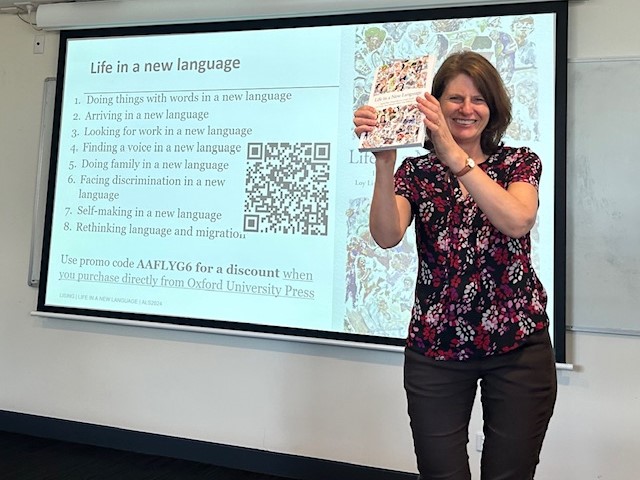
Prof Catherine Travis launches “Life in a New Language” at ALS2024
The annual conference of the Australian Linguistic Society (ALS) is a gathering of like-minded academics and presents a wonderful opportunity to see old friends and meet new ones, and to be intellectually encouraged to engage with language in all its forms and context. This year’s conference at the Australian National University was no different and offered an exciting program.
Our new book Life in a New Language featured prominently, including receiving a second launch (to learn more about the first launch, go here). At ALS, our book was launched by Professor Catherine Travis, the Chair of Modern European Languages in the School of Literature, Languages, and Linguistics at the ANU.
Catherine’s reflections on the book were a thoughtful heart-warming invitation to read Life in a New Language. This is part of Catherine’s testimony:
Many of the stories told are very familiar to me, as I’m sure they will be to all of you – many of you are migrants to Australia, and may have had similar experiences yourselves, and all of you will have been made aware of these kinds of experiences from migrants in your own families, close friends and colleagues.
And the message equally rings true to me, as I hope it will to you. I will just highlight three elements here.
Migrants are too often seen through a deficit lens – what is highlighted is their lack of English that adheres to a standardised norm; their lack of appropriate qualifications; their lack of local experience. This is in contrast to what they bring, which is their multilingual repertoire, qualifications in different settings, and their international experience. We need to address this deficit narrative and recognise that migrant families are raising the multilingual communication mediators of the future; and we need to support them in that endeavour, as our future depends on it.
Life in a New Language already has a veritable fan club
The responsibility for communication is too often placed on the migrant. As the authors state, language is viewed as a “cognitive skill, the level of which can be measured through proficiency tests. But it is also a communicative tool that interactants share to collaboratively achieve common goals” (p.124). This perspective shifts the burden of responsibility onto both parties involved in the interaction, and the authors call for more attention to be given to what it means to communicate well in a linguistically diverse society, to be more aware of the importance of inclusive communication.
And, crucially, the conversation needs to be taken out of the academy. This book goes a long way to doing that, as a highly readable and rich account of migrant stories. I hope that it is read widely, that the migrant stories here are heard, and are listened to.
Life in a New Language is an ethnographic data-sharing and re-use project and so it was also appropriate that we engaged strongly with the themed session on The Wealth of Resources on Migrant Languages in Australia organised by Professor Heike Wiese (Chair of German in Multilingual Contexts in the Humboldt University in Berlin), her doctoral researcher Victoria Oliha, and Dr Jaime Hunt (University of Newcastle).
This themed session aimed to provide a centralised forum for researchers on migrant languages in Australia to connect and present their findings as well as spark a conversation around the resources created through their projects. The following central questions were discussed:
- What empirical resources on migrant languages in Australia have been created? How can we make these resources accessible to the wider research community?
- From what theoretical and conceptual perspectives have migrant languages in Australia been studied? How can such studies inform each other?
- What methods have been used to study migrant languages in Australia? What can we learn from each other methodologically? What new methods could we use to gain further insights?
It is wonderful for Life in a New Language to be part of this conversation. As one of our biggest fan says in this unboxing video: “it teaches you how people develop.”

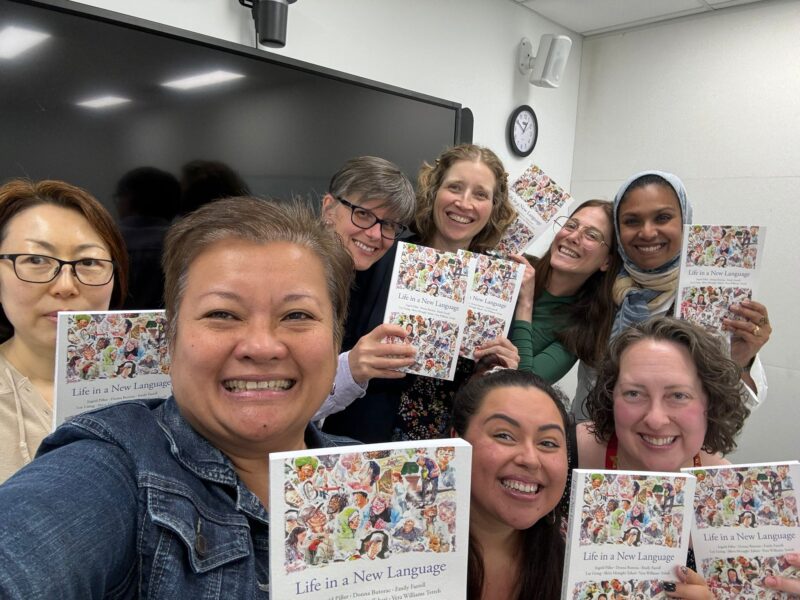
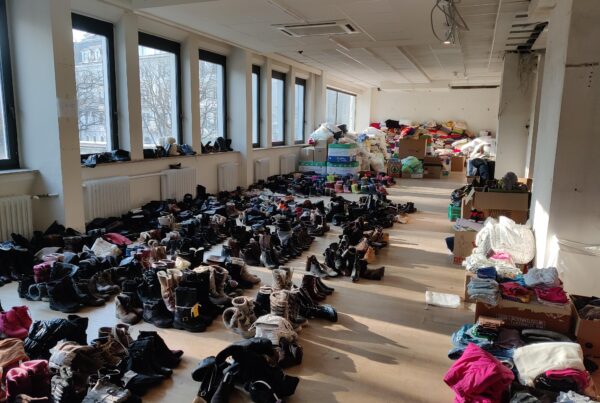
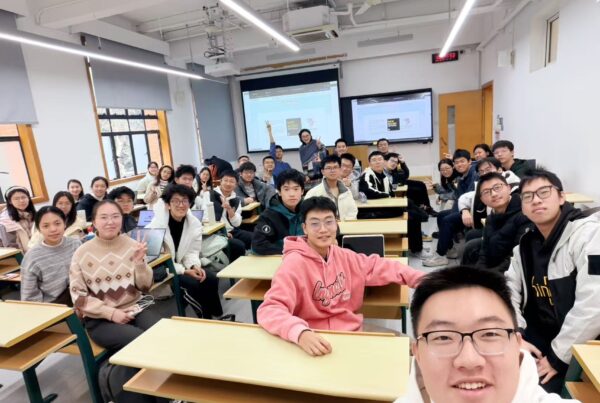
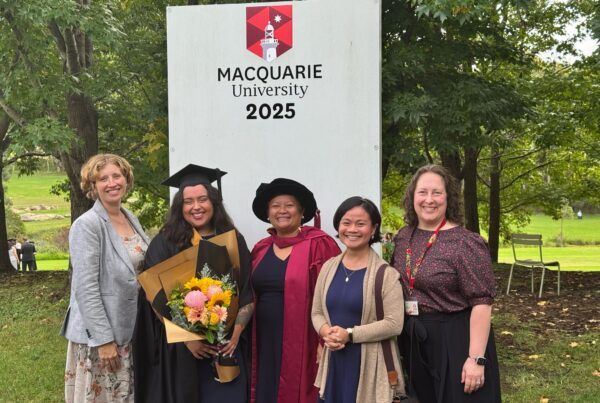


 This work is licensed under a
This work is licensed under a